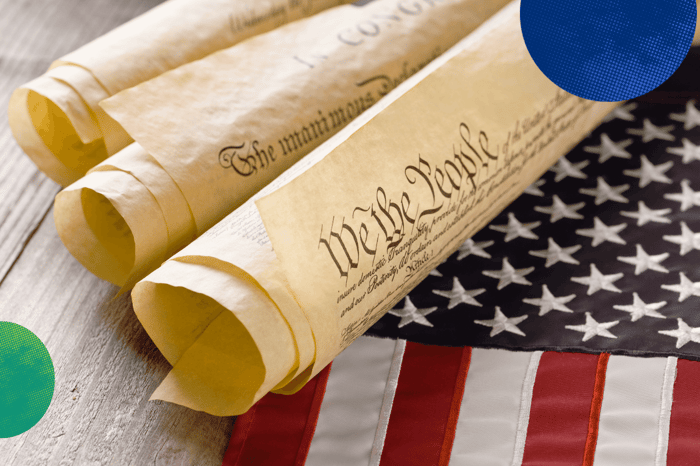History is a subject that is often considered essential in high school, but is it required in college? We’ll discuss the role of history in higher education and whether it’s required in all schools. Whether you’re a curious high school student or a college student looking for answers, we’ll go over everything you need to know about taking history in college.
What Are College History Classes?
History classes examine the past and how certain events shaped the world we live in today. Most history classes specialize in a specific place and period, but they can range from broad survey courses to much more specific investigations. You might take an overarching European History course, or a class focused specifically on Victorian England.
Some colleges have a history requirement as part of their general education requirements. If you’re only taking introductory courses to fulfill a requirement, you’re more likely to enroll in the courses that cover a wide range of history. The more specific the course, usually the more advanced it is. Some of the most common general education history courses include:
- U.S. History
- East Asian History
- 20th Century European History
Depending on your school, you may be able to choose from several history classes to fulfill your gen ed requirements.
Why Are History Classes Important?
As we navigate the present and plan for the future, history classes help us understand how people from the past faced the same or similar challenges that we do now. Knowing where we came from and acknowledging that others have had similar struggles gives us a glimpse into how we can push forward and overcome common problems.
Understand Change & Learn From the Past
Despite the digital advancements in our modern world, not much has changed in human history. There are still wars and plagues, leaders and societies, parents and children, joys and traumas. By carefully examining the past, we start to see patterns — how one thing leads to another. In doing so, we can try to avoid making the same mistakes again.
We can also learn to predict when there might be significant shifts in the world. The details may change, but the overarching causes and effects remain similar. The study of history helps us prepare as much as possible for an otherwise uncertain future.
Practice Critical Thinking Skills
History isn’t always a clear path from one point in time to another. Much depends on the types of sources you use, including primary sources (first-person accounts), secondary sources (interpretations of primary sources), or tertiary sources (textbooks or encyclopedias).
When you study history, you develop essential critical thinking skills that help you sift through different — and sometimes contradictory — information to piece the truth together like a puzzle. The skills you develop while studying history can be applied to almost any other class you take while in college and beyond as you learn how to make decisions based on the information presented to you.
Build Empathy
We mentioned that studying history shows us how little has changed throughout human existence. But history also teaches us about the importance of differences across time and cultures. These differences are what shaped the world as we know it today. In an increasingly globalized society, it’s critical to understand the personal impact of history as it has affected others.
A lot of people can resonate with specific figures in history, too. There’s probably some historical figure who lived in an entirely different place or time, yet you still feel like you can relate to their struggles, their actions, or their accomplishments. This also builds empathy as you start to understand that you can put yourself in the shoes of someone who might have lived a life completely different from yours.
What Is a History Requirement in College?
A history requirement in college refers to any history classes you might have to take while enrolled at your college or university in order to be eligible for graduation. This requirement may be outlined by a certain number of courses (you must complete 2 history classes), years (you must take history courses for 2 years), or credits (you must take 6 credits of history courses).
Some colleges may also have specific requirements, meaning each student has to take particular classes, like U.S History or European History, for example. Other colleges may have a distribution requirement, meaning you just have to take a certain number of courses or credits within the history department, but the exact courses are up to you.
When you choose which college or university you’ll go to, make sure to understand what history classes you may need to graduate on time.
Is History Required in College?
Not all colleges require you to take history courses for graduation. In fact, a recent study showed that only 23 of the 75 highest-ranking colleges in America included a history requirement in their gen ed curriculum.
This may vary depending on your school’s specific policies or your major. At some colleges, if you’re majoring in math or science, you may not have to take a history class. At other colleges, general education or distribution requirements will state that everyone has to take some amount of history credits, regardless of their major.
How to Complete a College History Requirement
Most colleges will offer a selection of history courses that you can take to fulfill your requirements. There may be a list of introductory but specialized courses to choose from, as we mentioned at the start of this blog. This allows you to select a class that’s of personal or meaningful interest to you.
If you’re looking for alternative ways to complete these requirements, some colleges may accept high school Advanced Placement (AP) history classes for credit. Make sure you check your college’s guidelines for AP credits.
Community colleges are another great way to take history classes for less than the cost of regular college tuition. They can often be taken in the evenings or on weekends so you can focus your regular school schedule on the classes you want to take.
Your school may have specific requirements you need to meet for your community college classes to transfer appropriately to fulfill your history requirements. It’s important to check with your academic advisor before enrolling to ensure you are taking the appropriate courses.
Finally, online classes are an affordable, flexible option for meeting history course requirements. Platforms like StraighterLine provide you with several history options that may qualify for your school’s core course requirements:
Get Started on General Education Requirements with StraighterLine
With StraighterLine’s courses, you can earn credit that may count toward your school’s history requirements. You can learn on your own schedule and at your own pace, and our affordable pricing model includes eTextbooks and 24/7 student support. All you need is an internet connection and a readiness to learn.












